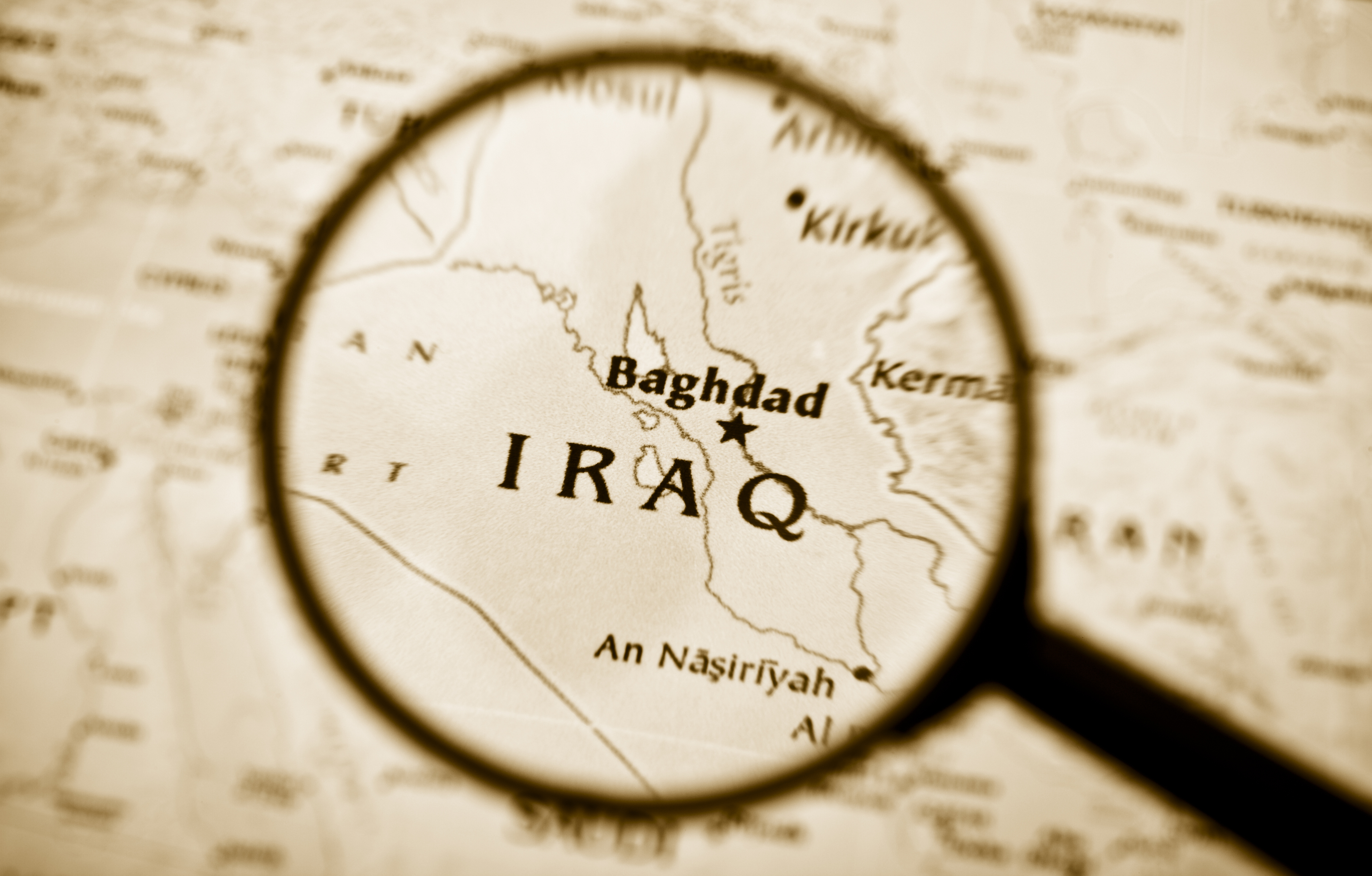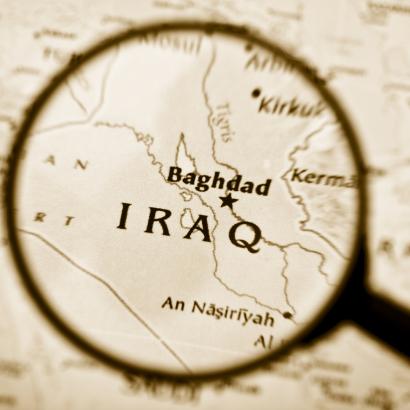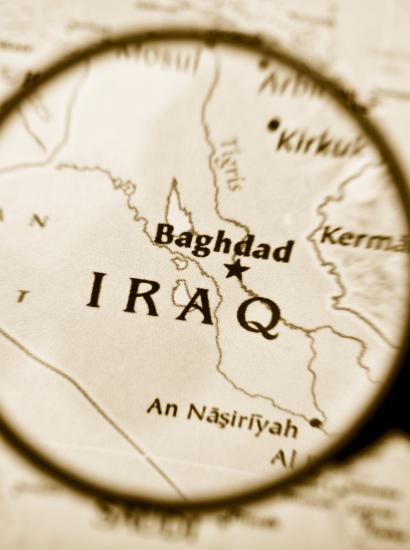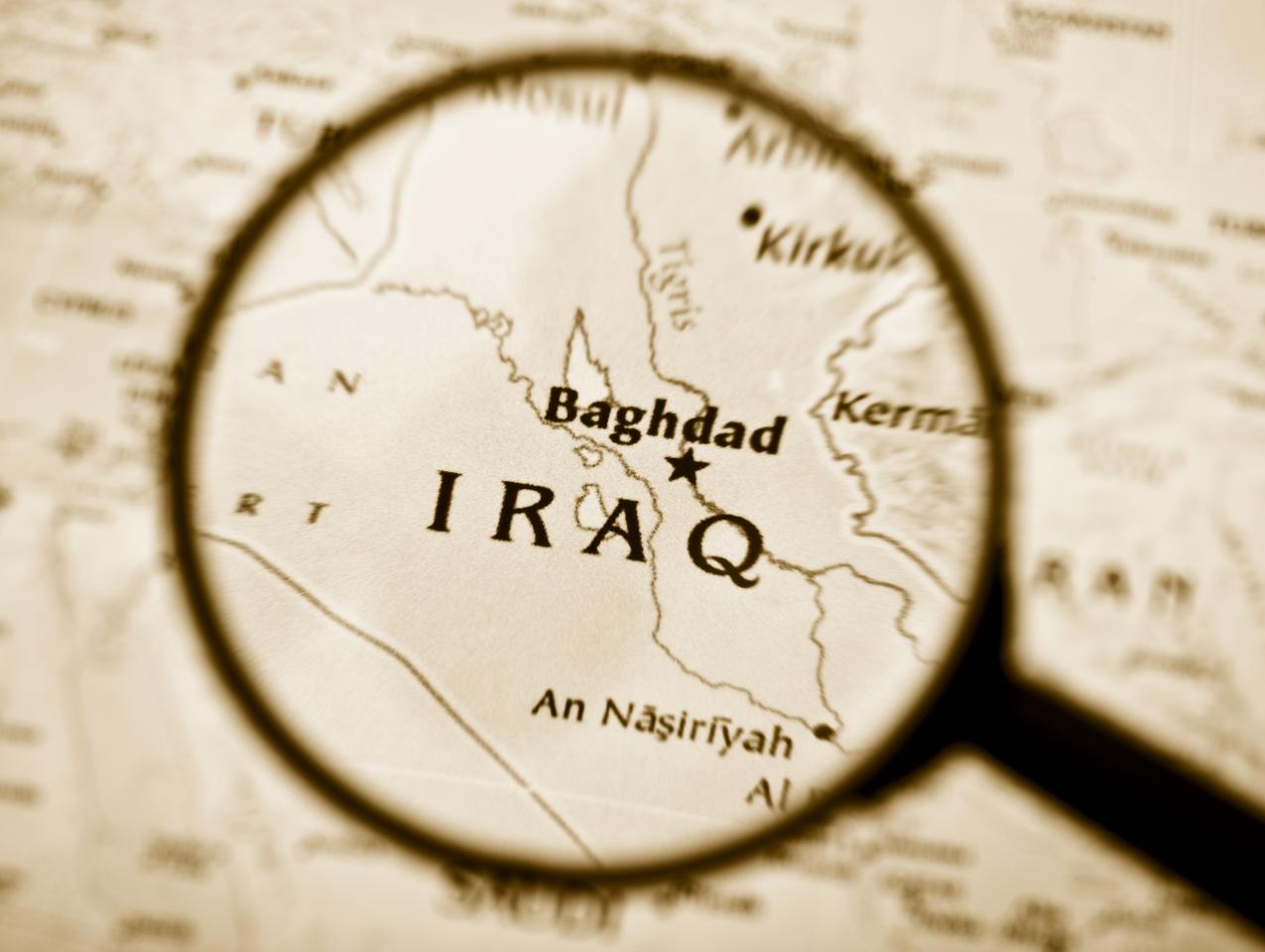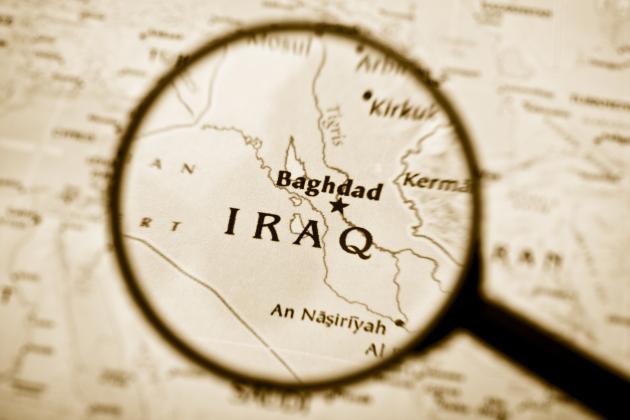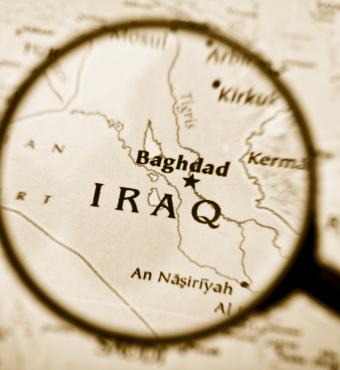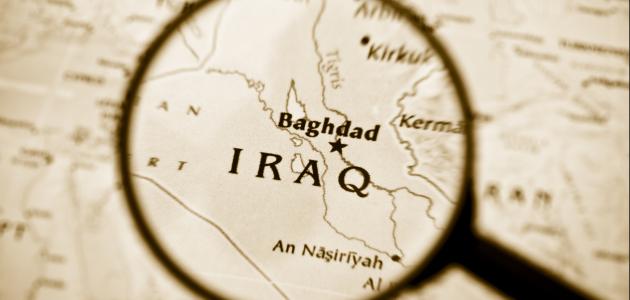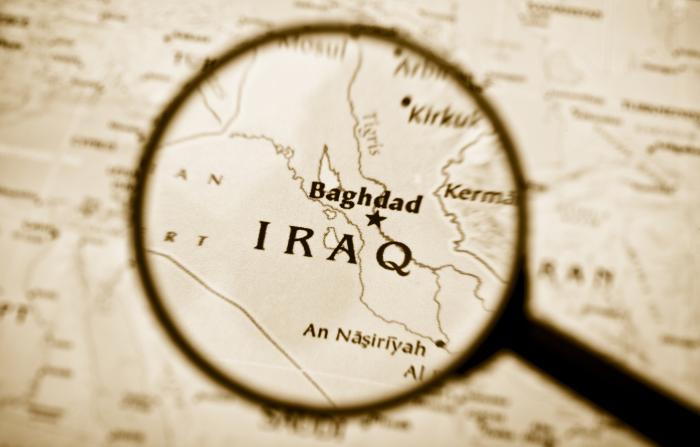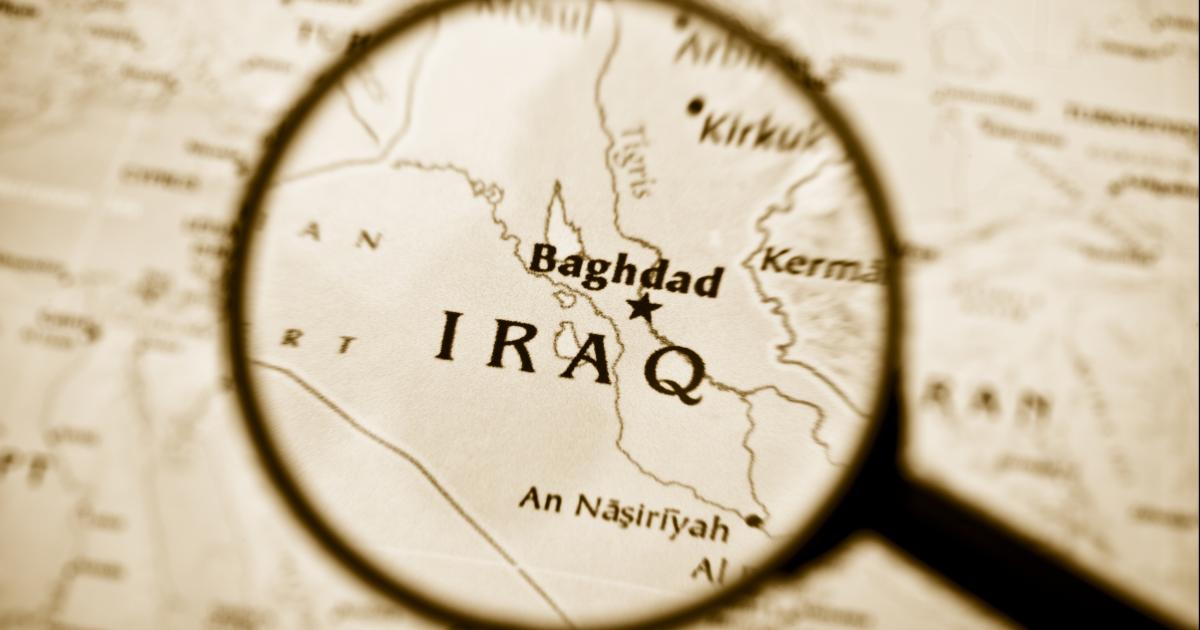By Michael P. Brill
On January 8, 2021, the U.S. Department of the Treasury’s Office of Foreign Assets Control announced sanctions against Iraqi Popular Mobilization Forces (PMF) Chairman Falih al-Fayyadh. An Iraqi politician who has demonstrated a proclivity for political survival, Fayyadh amassed considerable power in the state’s security services and paramilitary forces over the past decade. The Treasury measure designated Fayyadh for “his connection to serious human rights abuse,” and most directly addressed his role in the violent repression of Iraqi protests beginning in October 2019.
During the protests, Iranian-backed elements of the PMF attacked Iraqi civilians protesting government corruption, the lack of public services, economic stagnation, unemployment, and Iranian interference in Iraq. The Iranian-backed militias, together with members of the Iraqi security forces controlled by Fayyadh, used live ammunition, along with smoke and tear gas grenades at close range, to deadly effect against unarmed protestors. At the same time in Iran, security forces killed hundreds who protested the rising price of gasoline. During the crackdown in Iraq, cells from Fayyadh’s National Security Service transported masked gunmen through police checkpoints in order to bring them to firing positions against protestors. The same cells also kidnapped protestors from the city streets of Baghdad, Basra, and across southern Iraq, bringing them to upscale villas in Baghdad’s Dora district, where they handed them over to militias that subsequently tortured and killed them.
As the Treasury statement noted, “Al-Fayyadh was part of a crisis cell comprised primarily of Popular Mobilization Forces (PMF) militia leaders formed in late 2019 to suppress the Iraqi protests with the support of Iran’s Islamic Revolutionary Guards Corps-Qods Force (IRGC-QF).” Amnesty International and Human Rights Watch documented the killing of at least 600 protestors and the wounding of thousands, along with the detention and abuse of hundreds more. Then-U.S. Treasury Secretary Steven T. Mnuchin explained, “By directing and supervising the murder of peaceful Iraqi demonstrators, Iran-aligned militants and politicians such as Falih al-Fayyadh have been waging a violent campaign against Iraqi democracy and civil society.”
The sanctioning of Fayyadh utilized the Global Magnitsky Human Rights Accountability Act, aiming to restrict his activities in the international financial system. President Joe Biden and his administration are considering “a recalibration” with respect to sanctions as a tool in U.S. foreign policy, which could entail scaling back their use. However, maintaining the pressure on Fayyadh is in the interest of the United States and ordinary Iraqis. Given Fayyadh’s ambitions, shutting him out of the international financial system may be particularly effective for checking the growth of his power in Iraq, even if not reducing it directly.
The U.S. Treasury’s January announcement capped a major falling out between Fayyadh and U.S. officials over the preceding 16 months. Based on conversations with current and former U.S. officials, journalists, and Iraqi security affairs experts over the course of this period, it is clear that this rupture was inevitable and long overdue. Fayyadh’s fall from grace was catalyzed by his involvement in killing Iraqi protestors immediately following his October 3, 2019 meeting at the Pentagon with then-Secretary of Defense Mark T. Esper. Not long after this, he would be condemned on Twitter by then-Secretary of State Michael R. Pompeo for his role in the December 31, 2019 attack on the U.S. embassy in Baghdad. However, these were only the latest in a long line of actions by Fayyadh over the past decade in which he consistently worked to undermine U.S. interests in Iraq.
Although it may be impossible to determine Fayyadh’s personal motivations, his behavior has consistently overlapped with Iranian interests in Iraq. The same can be said about those closest to Fayyadh in Iraqi politics and security affairs, such as the late Abu Mahdi al-Muhandis, PMF Deputy Chairman Abd al-Aziz al-Muhammadawi, Hussein Falih Aziz al-Lami, and Hadi al-Amiri, along with Qais and Laith al-Khazali. Despite Fayyadh’s longstanding close ties with the aforementioned individuals being public information, some U.S. officials have continued to view him as “a moderate voice” and even opposed sanctioning him.
A Political Chameleon
Long before October 2019, Fayyadh sought to cultivate an image of himself in meetings with U.S. officials as Iraq’s indispensable interlocutor. One senior Iraqi security affairs expert described Fayyadh as “the consummate gray man,” who plays up the sense for his guest’s benefit “that you are talking to the most interesting man in the world.” Fayyadh’s holding onto the position of National Security Adviser since 2011 under the previous three Iraqi governments was no small political feat. He briefly fell from power when Prime Minister Haider al-Abadi sacked him for “having been implicated in partisan political matters which contravene the rules of neutrality which apply to members of the security and intelligence forces.” Fayyadh then only conceded his bid to become Interior Minister in the government of Abadi’s successor, Adel Abd al-Mahdi, when he was able to return to his position as National Security Adviser.
Albeit notable in his political longevity, Fayyadh’s strategy over the past fifteen years has been relatively straightforward. Since entering the national Iraqi political scene during the tenure of the Daʿwa Party’s first Prime Minister Ibrahim al-Jaafari between 2005 and 2006, and despite also being a party member, Fayyadh has positioned himself as a nominal political independent with the ability to align with whoever’s star is ascendent in the wider Shiʿite Islamist camp. However, playing every side for his own political gain eventually caught up with Fayyadh, both with U.S. officials and in the government of Iraqi Prime Minister Mustafa al-Kadhimi, who removed Fayyadh from his National Security Adviser and National Security Service Director positions last summer. Furthermore, Fayyadh’s traditional approach was complicated by the fact that Kadhimi, a former member of the Daʿwa Party turned secularist, was a genuine outsider to the post-2005 Iraqi political establishment dominated by Shiʿite Islamist parties.
In addition to his central role in killing Iraqi protestors, over the past decade, Fayyadh was the key figure in persuading former Iraqi Prime Minister Nuri al-Maliki not to extend the presence of U.S. troops in Iraq beyond 2011 following the failure to negotiate a Status of Forces Agreement. He personally worked to undermine the Sons of Iraq program preceding the rise of the Islamic State in Iraq and Syria in 2014, and directly facilitated Iran’s use of Iraqi air space to attack Saudi Arabia’s oil facilities on September 14, 2019. During this time period, Fayyadh regularly presented himself to U.S. officials in Baghdad and Washington as a restraining force against Iraq’s hardline elements who also kept the lines of communication open with all sides. A high-ranking U.S. official in Iraq during the Obama administration once said that “Fayyadh was the best interlocutor we had. He’s the type that would say what he needs to say and not much more. He would talk with you honestly and had real insights into decision-making in the government.”
Later, under the Trump administration and in the months immediately preceding the violent crackdown he would help direct in 2019, Fayyadh offered public reassurances about the integration of Iraq’s militias into state institutions with oversight. He explained, “We started this process, but we need to create a suitable environment for it… This is why we asked the Prime Minister for two more months.”
Whether it was presenting himself as a guide to Iraqi politics or restraint on hardline militias, Fayyadh appears to have long adopted a strategy also found in the Iranian regime’s playbook—the moderate—that has been employed primarily for American consumption since the days of the Reagan administration. Seen in this light, a sober-minded view of Fayyadh’s past and present activities, given his efforts to thwart U.S. Iraq policy under both the Obama and Trump administrations, should inform Iraq policy under the Biden administration going forward. In keeping with the Biden administration’s commitment to standing up to human rights abusers, U.S. officials may be able to leverage sanctions against Fayyadh to maintain pressure on his ambitions inside and outside Iraq, with the knowledge that he is not someone they can ease pressure on as a component of potential formal negotiations or informal talks with Iran.
Banking on Baghdad
Although the sanctioning of Fayyadh was surprising in that he was the highest-ranking Shi‘ite politician to be targeted, which put the Iraqi government in an awkward position, his designation was by no means an outgoing political gesture by the Trump administration. Neither was it a political move by the U.S. government without factual basis, as some Iraqi analysts have alleged.
A reason for optimism regarding the effectiveness of the U.S. Treasury’s sanctions against Fayyadh is that he had become an important background actor in the Iraqi Islamic Bank. Fayyadh may have viewed this as a gateway to the wider Gulf region, but more directly, undoubtedly perceived it as a means for gaining access to the U.S. “dollar auction” that is central to financing the Iraqi government’s expenditures and paying for imports. In practice, each day the Iraqi Central Bank provides dollars to several commercial banks in exchange for Iraqi dinars.
Like many Iraqi officials who have succeeded in enriching themselves personally since 2003, Fayyadh may also have assets in London. As millions of Iraqis live in abject poverty without reliable electricity or clean drinking water, he is part of a political elite that has transferred hundreds of billions of dollars beyond Iraq’s borders. Estimates of this figure range from $125 billion to as much as $500 billion. As such, the Global Magnitsky Act sanctions may be particularly troublesome for Fayyadh in his financial dealings abroad. They should also preclude his bid to gain a seat at the dollar auction in Baghdad, which has been described as the “sewage system of Iraqi corruption.”
Gatekeeper to the Ba‘thist Past, Repressor of Iraq’s Future
Almost nine years before being sanctioned by the U.S. Treasury Department, Fayyadh was a member of Prime Minister Nuri al-Maliki’s delegation which visited the Obama administration White House in December 2011. That October, Fayyadh visited the Hoover Institution on the campus of Stanford University, checking up on the 6.5 million pages of Saddam Hussein regime documents of the Baʿth Regional Command Collection.
In addition to his position as National Security Adviser, Fayyadh served as “Director of National Reconciliation.” Although not disclosed publicly, in this capacity Fayyadh had become the “Ba‘th-era documents czar.” At the time, the custodians of the archive, the Iraq Memory Foundation and the Hoover Institution, enjoyed the support of the Iraqi government for keeping the records at Stanford, where they remained until being returned to Baghdad as part of the U.S.-Iraq Strategic Dialogue in August 2020. At the time the documents were returned, Prime Minister Kadhimi had recently removed Fayyadh from his National Security Adviser and National Security Service Director positions. In light of Iraqi fears that the documents could be seized by the same militias Fayyadh oversees, the Wall Street Journal waited until midnight Baghdad time before breaking the story of their return. As a component of the heightened security procedures taken by the Prime Minister’s Office under Kadhimi in coordination with the Iraqi National Intelligence Service, Iraqi sources confirmed that Fayyadh was deliberately sidelined from the operation.
However, in May 2013, Fayyadh played a central role in the Defense Intelligence Agency’s repatriation to Iraq of a much larger collection of Saddam regime documents—an estimated 100 million pages of records, along with audio tapes—from where they had been stored in Doha, Qatar since 2003. Several current and former U.S. officials confirmed multiple visits by Fayyadh to the U.S. Embassy in Baghdad to discuss the subject in the preceding months. At the time, the Pentagon wanted to return the records to Iraq primarily due to “the Sequester” budget cuts. The May 16, 2013 “Relinquishment of Possession” document was signed by Fayyadh and then-U.S. Ambassador to Iraq Robert Stephen Beecroft. When informed of Fayyadh’s role in this operation, a former high-level U.S. diplomat who served in Iraq replied, “It is a pretty good assumption that if Falih al-Fayyadh had custody of the documents, they were used for sectarian purposes.” Another leading Iraqi security affairs expert stated, “Those records undoubtedly exist now in Iraq and Iran. The militias probably have copies of them as well. They were likely exploited by Fayyadh as Director of the National Security Service.”
Nearly 60 percent of Iraq’s population is under 25 years old, meaning that a majority of Iraqis alive today possess little memory of life under Saddam’s regime and the Ba‘th Party. Major factions of Iraq’s older political elite widely exhibit a conspiratorial and paranoid relationship with this history due to the fact that many suffered greatly, were forced to accommodate Saddam’s regime as active or passive supporters, were informants, or even former members of the Ba‘th Party or Iraqi military, Sunni and Shi‘ite alike. Others lived long years in exile. Many experienced a combination of some or all of these things. Iraq was a country where seemingly everyone and no one was a Ba‘thist. Fayyadh, as a member of the Da‘wa Party, was arrested and spent five years in the notorious Abu Ghraib prison. In his telling, he was released under fortuitous circumstances when Saddam visited a leader of his tribe. The pardon and release order came too late for Fayyadh’s brother, who had already been executed. Nevertheless, even Fayyadh has been accused by political rivals of having had ties to Saddam’s regime. Today, decades later, he stands between the official records of the Ba‘thist past and has perpetrated atrocities against overwhelmingly young Iraqis who demand a future different from either the Ba‘thist period or what they have lived through since 2003.
Conclusion
Falih al-Fayyadh’s journey from White House and Pentagon guest to target of Treasury Department sanctions is a cautionary tale of the perils of courting a Shi‘ite Islamist politician who has consistently subverted U.S. interests in Iraq in favor of Iran’s. In addition to maintaining the sanctions against him, the Biden administration should continue to work with its Iraqi partners and other allies to exclude Fayyadh from the international financial system. In view of Fayyadh’s proven track-record as not being a restraining force inside the PMF, the administration could also send a clear message that it holds him responsible for rocket attacks carried out by Iranian-backed militias against the International Zone in Baghdad, Erbil, and U.S. forces and interests elsewhere in Iraq. Prime Minister Kadhimi’s government may lack the interest or ability to remove Fayyadh from his last bastion of power in Iraq, the 160,000 men of the PMF he nominally oversees.
The Biden administration should further support Kadhimi’s security sector reforms and efforts to bring to justice those responsible for human rights violations during the protests of fall 2019. If successful, both initiatives should, over the long-term, serve to curtail the power of Fayyadh and his allies in Iraq. All of these steps on the Biden administration’s part will be in keeping with its pledge to recalibrate its use of sanctions while keeping human rights at the forefront of U.S. foreign policy.
Michael Brill is a Ph.D. candidate in Near Eastern Studies at Princeton University, where his research focuses on Baʿthist and contemporary Iraq.







